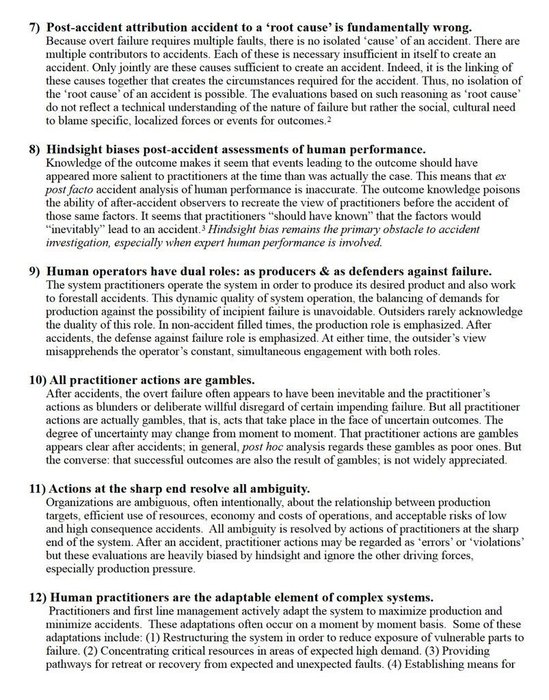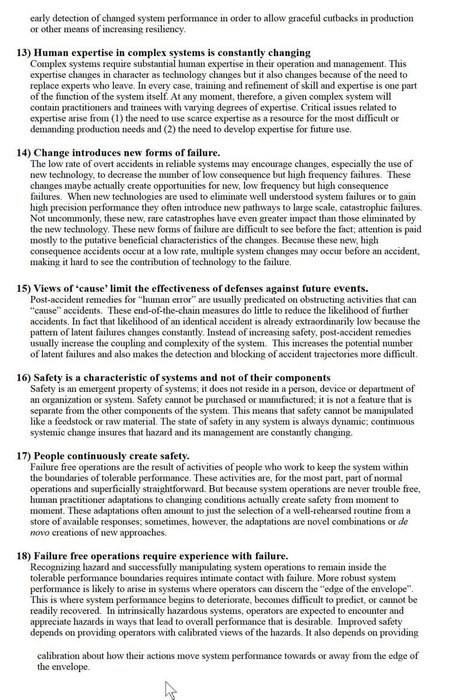Sublime
An inspiration engine for ideas
As the System grows in size and complexity, it gradually but inevitably outgrows its component specifications. Parts (whether human or electronic) begin to fail. The important point is: ANY LARGE SYSTEM IS GOING TO BE OPERATING MOST OF THE TIME IN FAILURE MODE What the System is supposed to be doing when everything is working well is really beside
... See moreJohn Gall • Systemantics. The Systems Bible
System failure is the failure of a system to achieve a goal—e.g., communicate a message, maintain a structural load, or maintain operation. It is inevitable that elements within a system will fail. It is not inevitable, however, that the system as a whole fails. Redundancy is the surest method of preventing system failure.
William Lidwell, Kritina Holden, Jill Butler • Universal Principles of Design, Revised and Updated: 125 Ways to Enhance Usability, Influence Perception, Increase Appeal, Make Better Design Decisions, and Teach through Design
There is good failure and bad failure. The former is failure that enables a system to learn, becoming more resilient, more adept. The latter is exhibited within a non-learning system. Are these non-learning systems due to their fundamentally out-of-control characteristics, systems whose complexity has grown beyond our comprehension and capability?
... See moreDan Hill • Dark Matter and Trojan Horses. A Strategic Design Vocabulary.
Chaos is characterized by two essential properties: The first is sensitive dependence on initial conditions, and the second is endogenous motion, meaning that, even though there are no external shocks, the system never settles down to rest. That said, the word chaos can be misleading, because chaos
J. Doyne Farmer • Making Sense of Chaos: A Better Economics for a Better World


So there are patterned, regular and rule-bound systems; these rule-bound workings can come to generate various unintended effects; and unpredictable events disrupt and abruptly transform what appear to be rule-bound and enduring patterns. This is a view which emphasizes networks of people, of systems, of societies as fundamentally historical, and
... See moreJohn Urry • What is the Future?
chaotic behavior changes and becomes more turbulent as the number of degrees of freedom increases.
J. Doyne Farmer • Making Sense of Chaos: A Better Economics for a Better World
Magical systems thinking - Works in Progress Magazine
worksinprogress.co


